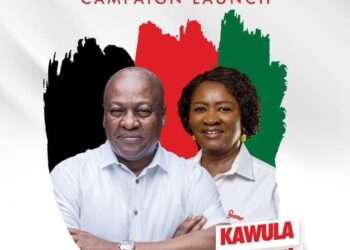Chairman of the Public Accounts Committee (PAC), James Klutse Avedzi, has expressed his excitement over the fact that the Auditor-General disregarded the advice from the Attorney-General concerning the publication of the Covid-19 report.
According to him, he is relieved because of the Auditor General’s dismissal of the Attorney-General’s description of the report’s publication as premature and unconstitutional, as it had not been first discussed by parliament. With this, he noted that further advising that the report be unpublished was wrong advice.
Mr Avedzi indicated that the laws of Ghana provide that the Auditor-General publishes his report immediately after he has presented it to the Speaker.
“I am happy that the Auditor-General has disregarded the advice from the Attorney-General. I said it last week that this advice is a wrong advice, therefore, the Auditor General should not heed to that advice and I am happy the report is still at the website of the Auditor General.”
James Klutse Avedzi
Mr Avedzi further explained his reason of siding with the Auditor General as due to the fact that oftentimes, debates on audit reports are delayed sometimes by years. As such, if the logic of the Attorney-General is anything to go by, it implies that Ghanaians would be kept in the dark for years before issues of national interest like the audit report is brought to the limelight.
The PAC Chairman noted that Article 87 (6) says that parliament shall debate the report. Owing to this, he expressed that when that debate will take place is not stated by the constitution.
“You’ll recall that in the past we used to have Auditor General’s report in arrears of six years, seven years. So, it means that it can take six, seven, eight years before the report will be debated. The officers who committed some of those irregularities might have retired, some might have died. So you want that report to remain and not to be known to the public until after six, seven years when the parliament is about to debate that report?.”
James Klutse Avedzi
Audit Service Act
Mr Avedzi highlighted that the Audit Service Act was created to ensure that citizens are kept in the know through the publication of the audit outcomes immediately the Speaker receives his copy. That gap in the constitution, he emphasized, is what is filled by the audit service act.
“My understanding of the constitution is that it is the mother law. It is not that detailed. So, for specific item in the constitution, there is a law that is passed by parliament to give effect to the provisions of the constitution. So, the Audit Service Act, which is Act 584, was passed by parliament to give effect to article 187 of the constitution.”
James Klutse Avedzi
Elaborating on his stance, Mr Avedzi revealed that in that act, because the parliament is mindful of the gap in the constitution that after the report has been submitted by the Auditor General to parliament and it can take more years or a very longer time for the parliament to debate, the public it cannot be in the darkness without knowing the content of that report.
“So, Section 23 of the Audit Service Act specifically says that the Auditor General shall publish his report as soon as the report has been submitted to the speaker to be laid. The section did not even say that the report should be laid before he publishes his report; it says that as soon as the Auditor General submits his report to the Speaker to be laid he must publish it. So, if the Auditor General after submitting the covid-19 report to the Speaker and went ahead to publish it what wrong has he committed?”
James Klutse Avedzi
On his part, Deputy Attorney-General, Alfred Tuah-Yeboah, stated that the Attorney-General does not have the power to direct the Auditor-General on what to do.
He averred that the independence and autonomy of the Office of the Auditor-General is guaranteed in Article 187 of the 1992 constitution.
The deputy Attorney-General however noted that the publication of the report ahead of its scrutiny by Parliament or a committee of it is unconstitutional and premature.
Although the Attorney-General’s comments have caused an uproar within civil society organizations and Members of Parliament, Mr Tuah-Yeboah believes that the Attorney-General’s comment was merely an advice and was not binding on the Auditor General.
“The Attorney-General does not have the power to direct or control the Auditor General so if any publication has been made, at best what the Attorney-General could do, and which we have done is to offer an advice. And you know an advice is not binding.
“You can look at article 187 of the constitution; you’ll get a situation where you look at the independence of the Auditor-General. So what the Attorney-General is seeking to do is not to direct or to control the Auditor-General to unpublish but solely to advice which we have done that’s why it’s not binding.”
Alfred Tuah-Yeboah
READ ALSO: There’s No Reason For Picketing- Finance Minister to Pensioners





















